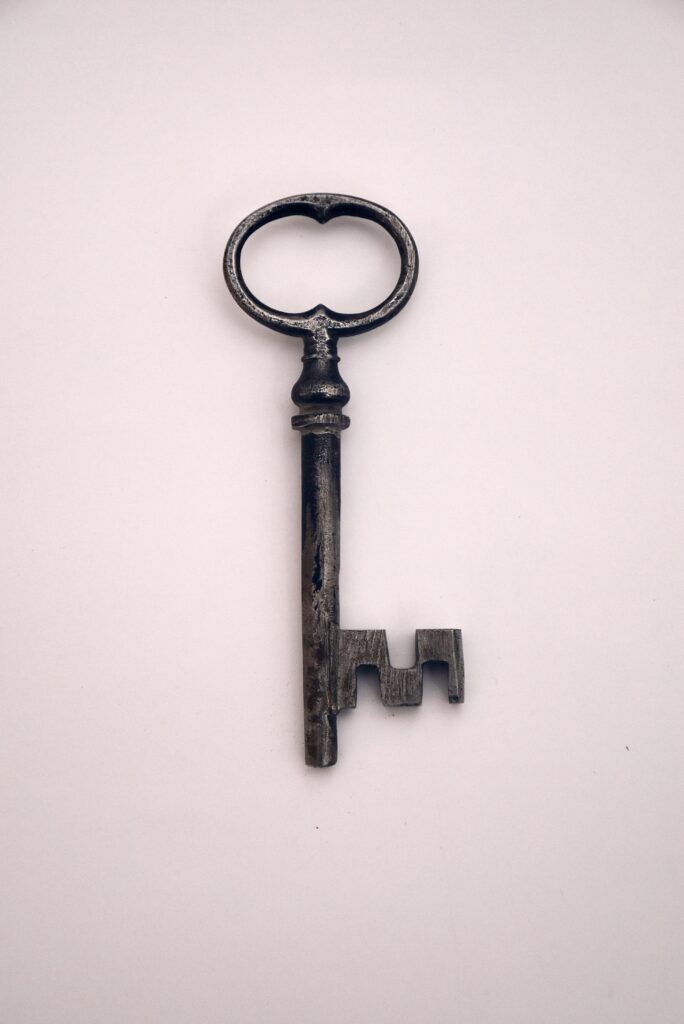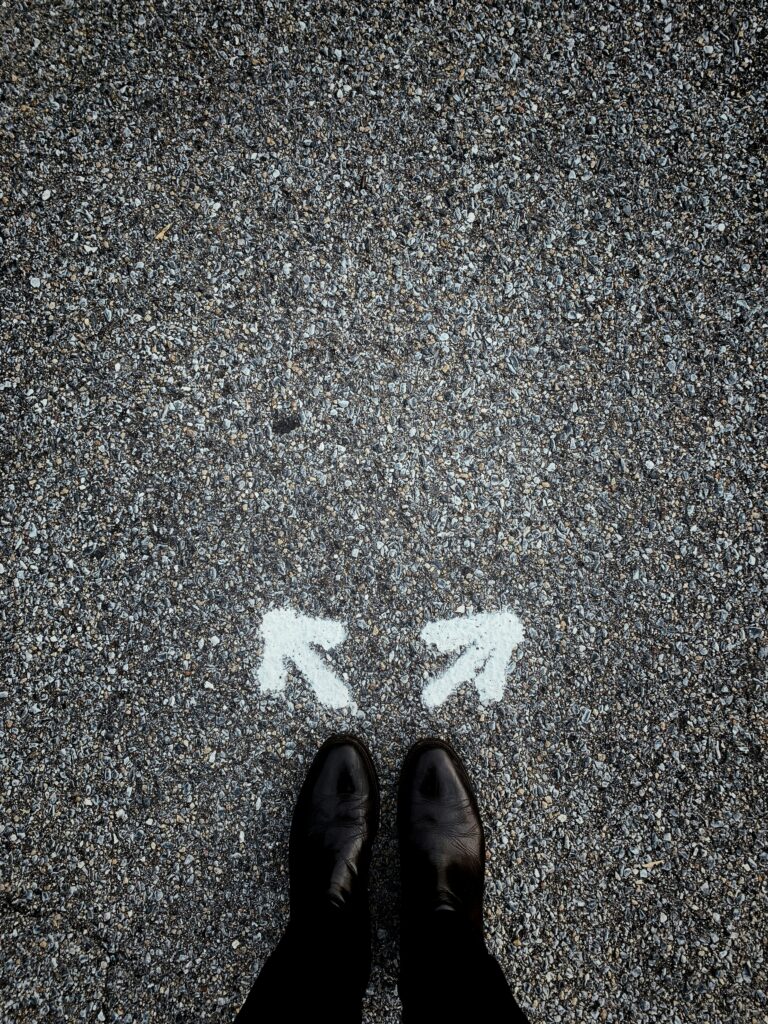
I want to go beyond the workplace and explore authenticity in people’s personal lives.
I had virtual coffee chats with 8 authentic leaders to explore this personal topic. With their agreement, I’m sharing the results in a 4-part article series. For context: you can read more on the methodology and how I define authenticity.
Today we focus on the third interview question: Are high achievers who are authentic in the workplace also authentic outside of it? Is there any correlation between personal and professional authenticity?
Compared with the previous questions, responses to this question were more intimate and touching. I have a deep appreciation for people sharing their heartfelt stories.
Key findings:
- There are key defining moment(s) in one’s life that shaped who they are and their choice to be authentic. Childhood events and upbringing have an impact on personal authenticity.
- While personal and professional authenticity are correlated for many interviewees, for a few it is easier to be authentic at the workplace given the nature of the relationship – not as long term and goal oriented.
These are their personal authenticity stories:
One authentic high achiever had a mom who had PTSD, depression, and anxiety so it felt like walking on eggshells because they never know if the mom is having a good day or a bad day. Because of this, they sought out others who are honest and trustworthy which gave them ground to be more authentic. Since this high achiever also has a first generation low income background, they see challenges as strength builders and adversity as authenticity cultivators. Their family and workplace experiences taught them to see what works, find what doesn’t work, what they want, and how they want to get to what they want. While the spouse of this high achiever commented that they can appear like a “Zelig” which is a movie character who mirrored whoever he is with – this interviewee believes that this is all part of them: the ability to not impose personalities, topics, or approaches to others, to be empathetic but hold boundaries so they do not bleed into another, and to be authentic as appropriate to each relationship.
One high achiever started out being inauthentic in their personal world because they are gay and in the closet. So they created inauthentic versions of themselves to fit into society and avoid retribution. They took on the motto of “fake it till you make it” but at one point started questioning: what is fake and what is real?! The opportunity to be more authentic came with the ability to reinvent themselves. For example: they changed their name from “Billy” to “Bill.” (These names are illustrative and not the interviewee’s name.) They further got to reinvent themselves at 16 years old when they went to a college preparation program away from home on scholarship. In addition to being gay, this person grew up in a poor immigrant family who didn’t fit in. They hid the fact that they were poor by never inviting friends to their home. At this prep school they quickly discovered they were on par, if not better, academically and intellectually than others whose family have much more wealth and opportunity. This gave them the confidence to be themselves, even if they had to run a few laps to get to the starting line of the race. That was when they started coming out and being more authentic about who they are – sexuality and all.
Another high achiever felt like the odd person out ever since childhood since their sibling did not like them and they did not have many friends in the neighborhood. It wasn’t until high school, when they had an opportunity to go to a school across town and was in a different setting that they had a chance to step into their own authenticity. They found friends who were more like them. Having originally been a shy child, they now get to choose to be who they are and start to find their voice.This is how they have the courage as a Black person to challenge their CEO and ask “Are you going to hire the next white man into this role?” which led to conversations about personality, access to opportunities, and representation mattering in the workplace and life. I personally was astounded that this person wasn’t laid off after this direct conversation with the CEO – authenticity and all!
One high achiever believes that if someone is authentic professionally then that person is likely to be authentic personally. However it can be challenging to be authentic in the personal realm. Authenticity in the professional setting has value in terms of leading and engaging with people but in personal settings you can’t see results as quickly because you are playing a much longer term game.A role in a company may last a decade but key personal relationships with your partner, spouse, or kid can (or at least one hopes) lasts much longer than that. So to be authentic and tell your partner that “I don’t really want to do the dishes” or your kid that “I don’t really want to watch another of your baseball games” may not be wise. So there may be incentives to be not as authentic at home because of the longer term frequency of interactions, inability to see impact right away, and the opportunity to mess up more. At the same time forgiveness, trust, and grace are very important in personal relationships. It may be easier to get a dopamine kick from staying late at work and accomplishing something but in the long term attending their kid’s baseball game will result in incremental relational well being.


Another high achiever believes that personal and professional authenticity are ultimately correlated but can be out of line for a period of time, especially since work can take a lot out of them. They reflected on how raising their eldest child and youngest child were so different: the eldest did not receive conversant advice (e.g.: this is what worked for me in this situation, do you want to hear about it?) from them while the youngest did. There is a wish to be more consciously competently authentic at work and at home so it would take less time to be effective and sustainable in whatever they do.
Another high achiever also believes that personal and professional authenticity is correlated. In their case, they had a sibling very close in age, was compared a lot to each other, and the siblings did not get along. It wasn’t until going to the workplace, they started being their own person and was able to be more of themselves without their sibling nearby. That was the start of their own authenticity journey by becoming more confident in themselves. So it was interesting to observe that this person’s authenticity started in their professional life and then permeated into their personal life.
For one high achiever personal and professional authenticity is grounded in internal presence (i.e.: What am I experiencing on the inside?) AND external awareness (i.e.: Is what I see real and can I share it in appropriate ways?) It answers the question – is my self perception grounded in reality and do I have a realistic view of my relationship with others? For this high achiever, personal relationships are more nuanced and complex so stepping into authenticity may be more complicated. For example: it is a much more intimate relationship with a partner where societal roles are complex so the space to be authentic can also be affected.
One high achiever sees personal authenticity as more self driven since it is less about the culture. If one is personally authentic then people will be more willing to come and talk with you because they know they are getting a true viewpoint. This also allows for better interpersonal connection. In the professional world, sometimes it seems like people bring a different personality to work or need to adapt to the environment. In environments where authenticity is not encouraged then people become political because they don’t want the mental anguish of being themselves. But if one is aware of the situation, then they can make a conscious decision to seek environments that encourage authenticity.As a child, this high achiever spoke up and got into trouble so as they got older and wiser they learned to evaluate and ask more questions. As they become more senior in the professional world, there is more room to be themselves because they become more comfortable. With more power there is potential to be more authentic but it is not guaranteed.
I marvel at the range of experiences that stimulated and cultivated authenticity in each of the interviewees. They each had such different backgrounds and spoke openly of painful and joyful experiences that fuel their authenticity.
While there are key defining moment(s), environments, or spaces that gave them room to explore authenticity, there are also distinct choices: to choose not hide anymore, to choose to be with people who are also honest and trustworthy, to choose to have a clear perception of self and relationships, to choose to realize they are just as competent or smart as other people, and to choose to go beyond their upbringing. So in a sense personal authenticity is a choice.
~~~~~~~~~~~~~~~~~
Do you know an authentic high achiever you wish I’d interviewed? Message me their name! I would love to invite them into a bigger study.
For more articles about authenticity, achievement, and leadership subscribe to the Authentic Musings newsletter!
PS: The first interview question is: What drives high achievers? You can read the article here.
PPS: The second interview question is: What are the traits, characteristics, or qualities of high achievers? You can read the article here.
PPPS: The third interview question is: since not all high achievers are authentic, what makes some high achievers authentic? You can read the article here.
Join the email list to stay up to date on the newest articles.
